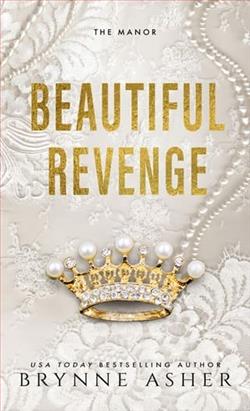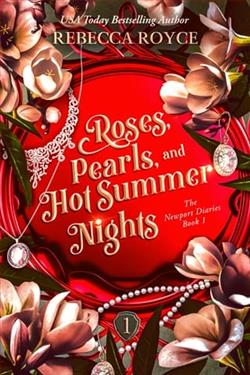In fact I resemble her at least superficially. But my features are larger, cruder, and my mouth is more mobile and can be very mean at times. And you can see my sense of humor in my expression, my capacity for mischievousness and near hysterical laughing, which I've always had no matter how unhappy I was. She did not laugh often. She could look profoundly cold. Yet she had always a little girl sweetness.
Well, I looked at her as she sat on my bed -- I even stared at her, I suppose -- and immediately she started to talk to me.
"I know how it is," she said to me. "You hate them. Because of what you've endured and what they don't know. They haven't the imagination to know what happened to you out there on the mountain. "
I felt a cold delight in these words. I gave her the silent acknowledgment that she understood it perfectly.
"It was the same the first time I bore a child," she said. "I was in agony for twelve hours, and I felt trapped in the pain, knowing the only release was the birth or my own death. When it was over, I had your brother Augustin in my arms, but I didn't want anyone else near me. And it wasn't because I blamed them. It was only that I'd suffered like that, hour after hour, that I'd gone into the circle of hell and come back out. They hadn't been in the circle of hell. And I felt quiet all over. In this common occurrence, this vulgar act of giving birth, I understood the meaning of utter loneliness. "
"Yes, that's it," I answered. I was a little shaken.
She didn't respond. I would have been surprised if she had. Having said what she'd come to say, she wasn't going to converse, actually. But she did lay her hand on my forehead -- very unusual for her to do that -- and when she observed that I was wearing the same bloody hunting clothes after all this time, I noticed it too, and realized the sickness of it.
She was silent for a while.
And as I sat there, looking past her at the fire, I wanted to tell
her a lot of things, how much I loved her particularly.
But I was cautious. She had a way of cutting me off when I spoke to her, and mingled with my love was a powerful resentment of her.
All my life I'd watched her read her Italian books and scribble letters to people in Naples, where she had grown up, yet she had no patience even to teach me or my brothers the alphabet. And nothing had changed after I came back from the monastery. I was twenty and I couldn't read or write more than a few prayers and my name. I hated the sight of her books; I hated her absorption in them.
And in some vague way, I hated the fact that only extreme pain in me could ever wring from her the slightest warmth or interest.
Yet she'd been my savior. And there was no one but her. And I was as tired of being alone, perhaps, as a young person can be.
She was here now, out of the confines of her library, and she was attentive to me.
Finally I was convinced that she wouldn't get up and go away, and I found myself speaking to her.
"Mother," I said in a low voice, "there is more to it. Before it happened, there were times when I felt terrible things. " There was no change in her expression. "I mean I dream sometimes that I might kill all of them," I said. "I kill my brothers and my father in the dream. I go from room to room slaughtering them as I did the wolves. I feel in myself the desire to murder. . . "
"So do I, my son," she said. "So do I" And her face was lighted with the strangest smile as she looked at me.
I bent forward and looked at her more closely. I lowered my voice.
"I see myself screaming when it happens," I went on. "I see my face twisted into grimaces and I hear bellowing coming out of me. My mouth is a perfect O, and shrieks, cries, come out of me. "
She nodded with that same understanding look, as if a light were flaring behind her eyes.
"And on the mountain, Mother, when I was fighting the wolves . . . it was a little like that. "
"Only a little?" she asked.
I nodded.
"I felt like someone different from myself when I killed the wolves. And now I don't know who is here with you -- your son Lestat, or that other man, the killer. "
She was quiet for a long time.
"No," she said finally. "It was you who killed the wolves. You're the hunter, the warrior. You're stronger than anyone else here, that's your tragedy. "
I shook my head. That was true, but it didn't matter. It couldn't account for unhappiness such as this. But what was the use of saying it?
She looked away for a moment, then back to me.
"But you're many things," she said. "Not only one thing. You're the killer and the man. And don't give in to the killer in you just because you hate them. You don't have to take upon yourself the burden of murder or madness to be free of this place. Surely there must be other ways. "















